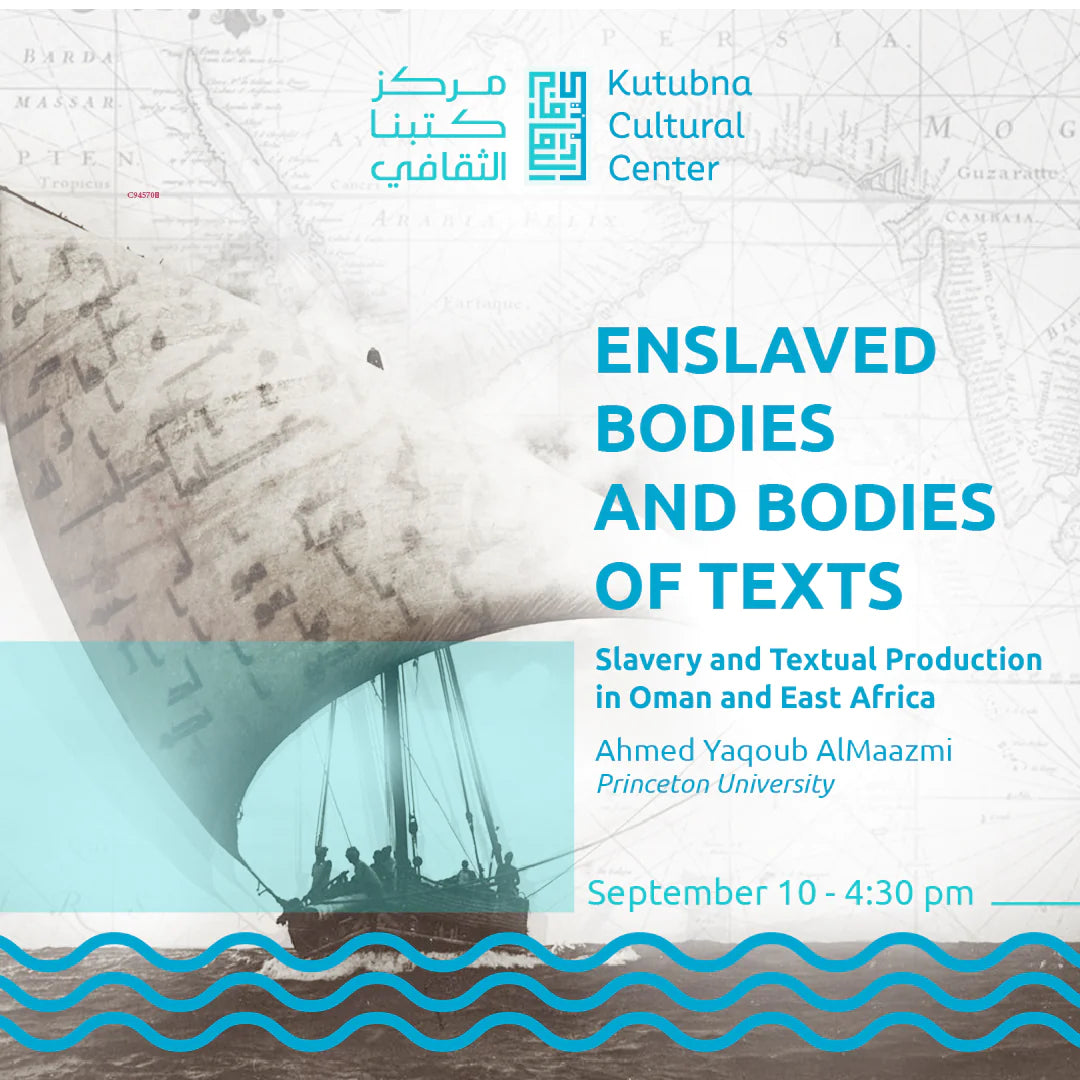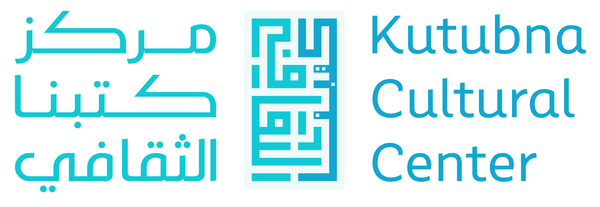Kutubna Cultural Center
Sunday 10/9 - Lecture: Enslaved Bodies and Bodies of Texts
Sunday 10/9 - Lecture: Enslaved Bodies and Bodies of Texts
Couldn't load pickup availability
Enslaved Bodies and Bodies of Texts: Slavery and Textual Production in Oman and East Africa
Ahmed Yaqoub AlMaazmi
Sunday, 10 September 2023
4:30 pm
Registration fee: 100.00 AED
The intellectual labor of enslaved individuals in textual production across Arabia and around the Indian Ocean has been overlooked in historical narratives and literary scholarship. To rectify this omission, Ahmed AlMaazmi delves into the intricate connections between slavery and the history of the book during the transformative 19th and early 20th centuries.
AlMaazmi sheds light on the agency and contributions of enslaved individuals as authors and transmitters of written Arabic texts, encompassing a diverse array of subjects ranging from the occult sciences to Islamic jurisprudence.
Furthermore, he seeks to uncover the intellectual capabilities of the enslaved and challenge prevailing narratives about their historical experiences within the Omani Empire. By building on the scholarship that predominantly focused on oral expressions of identity and community-building practices among the enslaved, he argues for acknowledging the substantive and multidimensional intellectual roles played by enslaved literati. In doing so, he interrogates the dynamics of power that governed both the authorship and ownership of enslaved bodies and bodies of texts.
Concomitantly, he analyzes how the written record was both shaped by the complex realties of slavery and how that, in turn, reflected the history of knowledge production and dissemination. By drawing from a wide range of East African and Omani manuscript collections, he unearths and amplifies the various contexts in which enslaved writers actively participated in a flourishing transoceanic literary circuit.
Their roles were multifaceted, involving not only authors, but also manuscript copyists, booksellers, and patrons of intellectual activities. Through their engagement with a transoceanic knowledge economy, these individuals leveraged their intellectual capital, despite the confines of slavery, thereby forging an indelible imprint on the intellectual fabric of the Indian Ocean world.
Born and raised in Sharjah, Ahmed graduated from Zayed University with a B.A. (Hons) in international studies. After interning with the United Nations World Food Programme and studying cultural anthropology at Rutgers University as a Fulbright fellow, he enrolled at Princeton University to pursue a doctorate in the Department of Near Eastern Studies. His dissertation research focuses on the intersection of the occult sciences and the environment in the Indian Ocean world.
Share


